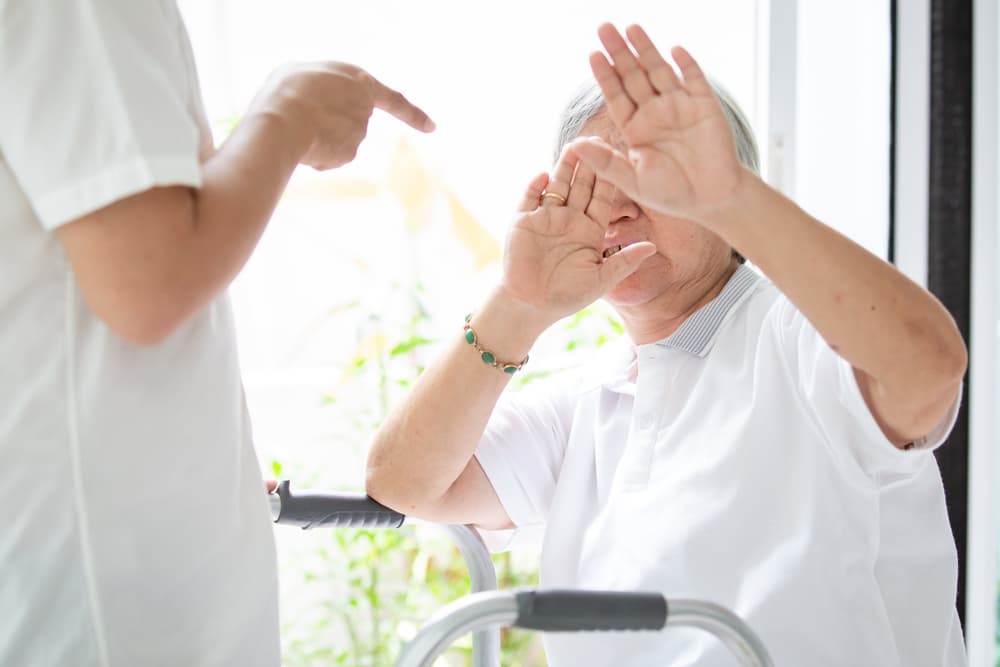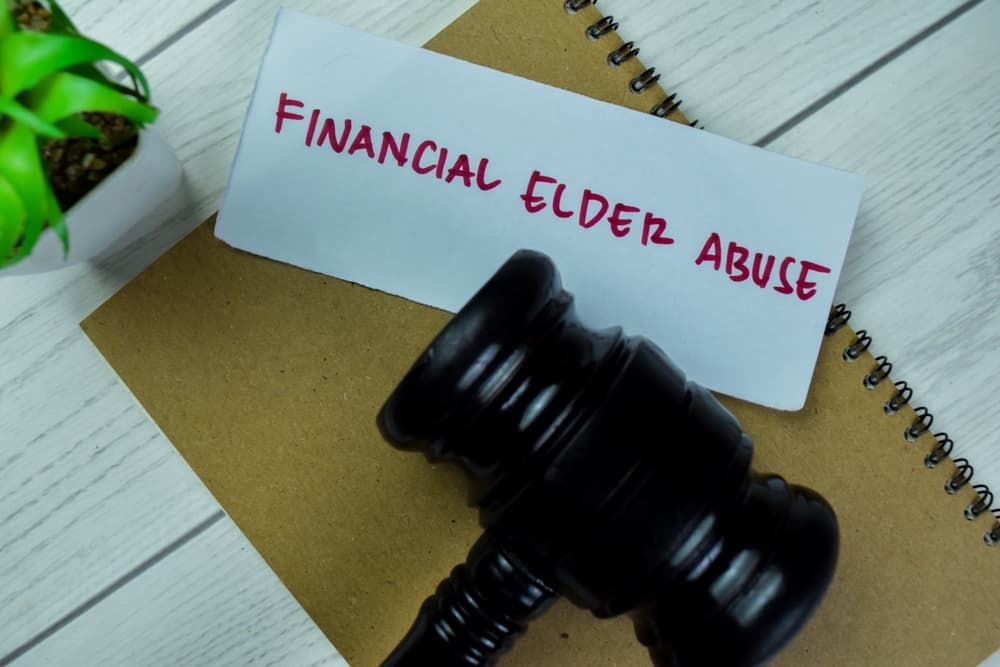Don’t know what to do if your loved one is a victim of elder abuse? Discovering that an elderly loved one is a victim of neglect or abuse is angering, and rightfully so. Seniors are more vulnerable to being neglected or abused, primarily because many of them suffer from physical and cognitive disabilities, rendering them more unlikely to report it.
If your loved one is a victim of elder abuse, you should consult an elder abuse attorney in Winder immediately. They will listen with compassion while evaluating the circumstances of your case. You'll want to discuss your legal options to recover compensation for damages incurred from your elderly loved one's neglect or abuse.
How Prevalent Is Elder Abuse in the U.S. Today?

The National Institutes of Health (NIH) reports that abuse in long-term facilities is prevalent in the U.S. Nursing homes and other long-term care facilities are amongst the places with the highest reported rates of elder abuse.
A study found that an alarming 40 percent of the staff in their sample admitted to at least one instance of psychological abuse over the previous 12 months of caring for elderly patients. These abuses included yelling and swearing at nursing home residents, inappropriate isolation, and denying them food privileges.
What Are the Common Types of Elder Abuse?
Unfortunately, there are many ways trusted caregivers and nursing home facilities abuse elderly patients and residents. The most common types of elder abuse include:
- Elder neglect
- Physical elder abuse
- Verbal elder abuse
- Psychological or emotional elder abuse
- Financial elder abuse
Medical neglect and medical malpractice are additional types of elder abuse. If you suspect or know that your loved one is a victim of medical neglect or malpractice, schedule a consultation with an elder abuse lawyer immediately.
What to Do if Your Loved One Is a Victim of Elder Abuse
After discovering your loved one is a victim of elder abuse, there are several essential steps to take. After talking to your loved one, the following steps involve:
- Ensuring Their Immediate Safety: If your loved one has suffered an injury, remove them from immediate danger and get them the necessary medical care. Contact emergency services and local law enforcement. Do not speak to anyone at the nursing home facility before speaking with an elder abuse attorney.
- Documenting the Evidence: Make notes of any physical, emotional, or financial signs of elder abuse that you observe. Evidence may include photographing physical injuries and unsanitary living conditions and providing copies of suspicious financial transactions and other activities.
- Reporting Abuse: State jurisdictions have different agencies responsible for reporting elder abuse. Most states have an Adult Protective Services (APS) that handles these reports.
Hiring an elder abuse lawyer is a critical aspect of what to do if your loved one is a victim of elder abuse. They deserve a qualified voice representing their legal interests and the right to recover compensation for financial losses and other damages, including pain and suffering.
What Are the Signs of Elder Neglect?

There are many visible and non-verbal indicators of elder neglect. While not all elder neglect is apparent, common signs include:
- Dehydration and malnutrition that aren't related to a medical cause
- Unusual weight loss
- Inadequate clothing or dressing for appropriate temperatures and weather
- Untreated medical conditions (bed sores and skin rashes)
- Lack of medical devices (hearing aids and eyeglasses)
- Unsanitary living conditions (soiled linens or clothing, bed bugs, lice, dirt, and fecal matter and urine)
- Unsafe living conditions (absence of running water, heat, AC, and electricity)
- Frequent injuries from preventable circumstances (slip and falls and accidental poisonings)
Another sign of elder neglect is the abandonment or desertion of your loved one in a hospital, nursing home facility, shopping center, or public place. Deserting an elderly person dependent on care is never acceptable.
What Are the Physical Signs of Elder Abuse?
Physical signs of elderly abuse may be easier to spot than other signs. Common physical indicators of abuse may include:
- Frequent and unexplained bruising, black eyes, scarring, and welts
- Open cuts, wounds, and untreated injuries in various healing stages
- Dislocations, sprains, fractured and broken bones
- A pattern of recurring injuries
- Inconsistent explanations about injuries
- Signs of physical restraints (markings on wrists)
- Signs of overmedicating or sedation
- Burns on the skin
- Unexplained hair loss (possibly from having hair pulled out)
- Caregiver refuses to allow visits alone with your loved one
Unfortunately, swatting, slapping, and hitting a resident is a common form of abusing the elderly in nursing homes and other similar facilities. Broken glasses or frames may be another indicator that your loved one is a victim of elder abuse.
What Are the Psychological Signs of Elder Abuse?
It’s important to know how to identify signs of elder neglect and abuse, and psychological signs may be more challenging to pick up on. Common psychological indicators of abuse involve:
- Evident anxiety and fear around specific caregivers or nursing home staff
- Being agitated or emotionally distressed
- Hesitation to communicate or speak (non-responsive)
- Avoiding eye contact
- Changes in eating habits and sleeping patterns
- Depression (withdrawing from social interactions)
- Apologizing excessively and other personality changes
- Abnormal or recessive behavior developments (rocking, sucking thumb, or biting)
- Contrasting accountings of incidents by the caregiver and elderly abuse victim
To best determine what to do if your loved one is a victim of elder abuse, consult an attorney to discuss the specifics of your case. They will better inform you of your legal recourse to recover financial compensation for your loved one.
What Are the Financial Signs of Elder Abuse?

Looking for signs of financial abuse includes checking bank statements, account balances, credit card bills, and other financial documents. Common financial signs of elder abuse are as follows:
- Unexplained or substantial withdrawals from your loved one's accounts
- Sudden changes in their financial status or condition
- The inclusion of additional names on their bank signature card
- Unauthorized withdrawal of funds using your loved one's ATM card
- Sudden or unexplained transfer of assets to a family member or someone outside the family
- Sudden or unexplained credit card charges
- Forged signatures on checks or financial transactions
- Excessive gifting to a caregiver or nursing home staff member
- Disappearance of valuable items, cash, property, and other assets
- Unauthorized changes in your loved one's wills, powers of attorney, or other legal documents
Financial signs of elder abuse may be easier to detect because they involve a paper trail. That makes documenting the evidence and providing copies to your attorney more straightforward.
Consult an Elder Abuse Attorney Now
Elder abuse is particularly irreprehensible. You don't have to do this alone. If your elderly loved one is a victim of neglect or abuse, schedule a free consultation with an experienced personal injury lawyer immediately. They will know how to proceed with your case best.